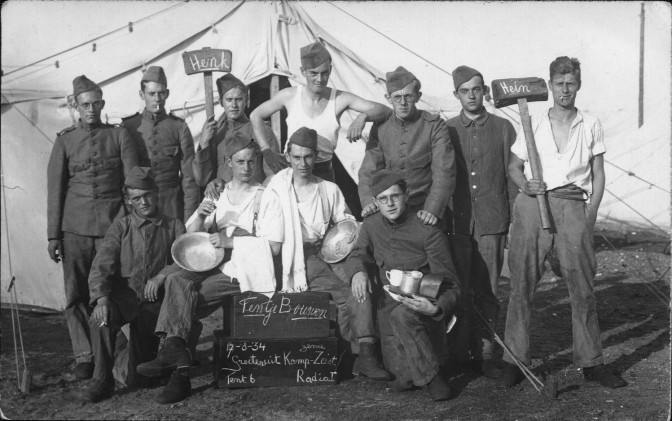“The past is a foreign country, they did things differently there.”1 One of the fundamental differences is the way that people were named. In many parts of the Netherlands, people did not have a hereditary surname until 1811. But even after 1811, names could get changed, for instance if someone emigrated or if the clerk made an error.
The next time you’re stuck, ask yourself: what other name could this ancestor have used?

Military recruits, 1934
Related articles:
Sources
- Leslie Poles Hartley, The Go-Between (1953), opening sentence.


Hello. I’m writing because my Father told me for years that he was half Dutch and half German. He was told as a child that his ancestors that immigrated to the US changed our last name from Van Der Ploun ( not exactly sure of the spelling) to Plume when they came to America. I’ve heard that Van Der Ploun is not a Dutch name. Is it possible that it was just misspelled by my ancestors or the immigration officers who took their information?
It sounds like the name “Van der Pluim,” also spelled as Pluijm or Pluym. Try searching for those names, leaving off the prefix “van der.”
Thank you so much. I will look for those. The last one seems kind of familiar for some reason.